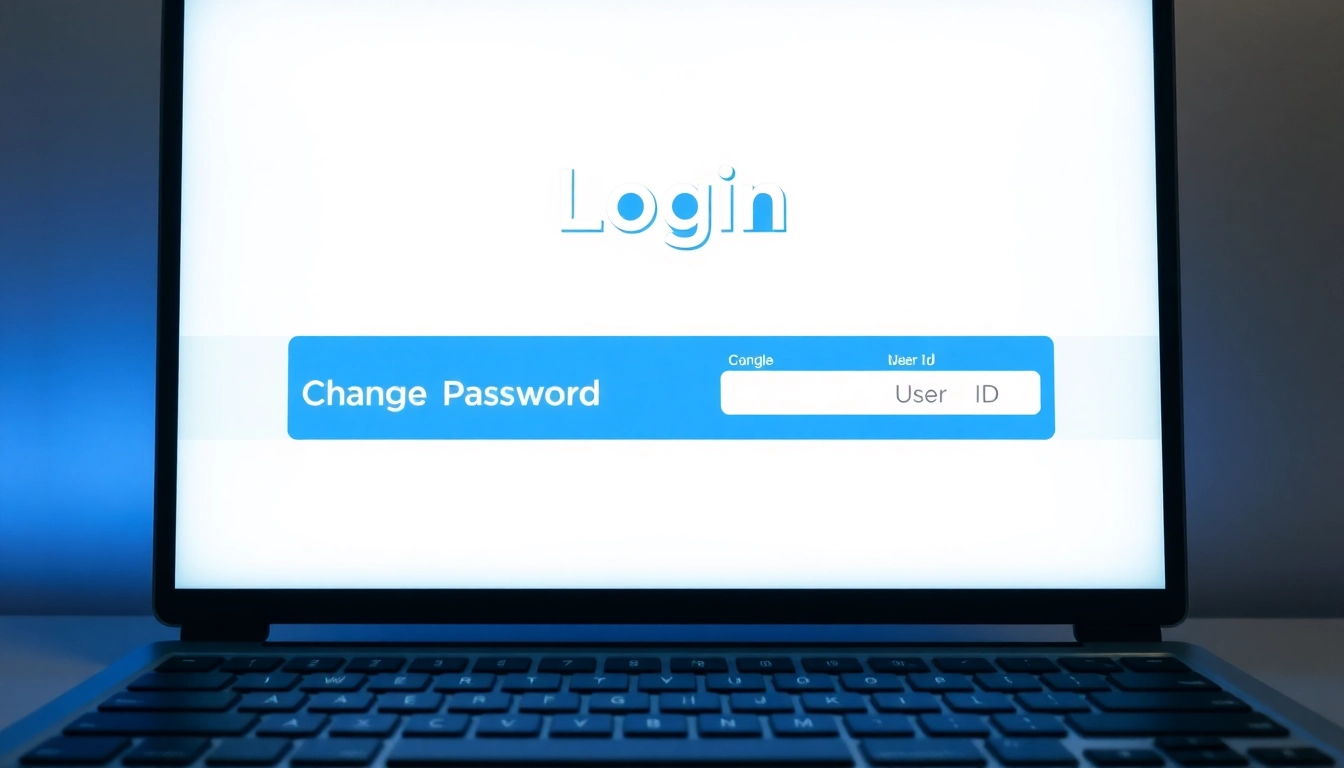Understanding Your Lotus365 ID and Its Importance in Account Security
In today’s digital age, managing online accounts securely is more critical than ever. For users of Lotus365, a platform renowned for sports betting, gaming, and various online services, the Lotus365 ID serves as the crucial gateway to access personalized features and ensure transaction safety. Your Lotus365 ID is not just a username; it is the cornerstone of your digital identity within the platform. Securing it effectively means safeguarding your financial transactions, confidential data, and overall user experience.
What is Lotus365 ID and Why It Matters
The Lotus365 ID is a unique identifier assigned to each user upon registration, enabling seamless access to a wide array of services—ranging from sports betting, casino gaming, to managing account preferences. Unlike traditional login credentials, a well-maintained Lotus365 ID acts as a secure digital passport that confirms your authenticity across the platform. Its significance extends far beyond simple login purposes; it influences your ability to access special features, receive exclusive rewards, and participate in secure transactions.
In an environment where online security threats are rampant, protecting your Lotus365 ID is paramount. Similar to banking credentials, your ID can be targeted by cybercriminals aiming for unauthorized access, identity theft, or fraud. Consequentially, understanding its role and implementing robust security practices can keep your account safe from potential breaches.
Why Your Lotus365 ID Matters
- Personalized Experience: Your ID links to your betting preferences, transaction history, and reward profiles.
- Security and Privacy: It helps verify your identity, adding an extra layer of security in transactions and account changes.
- Access to Exclusive Features: Certain promotions, VIP benefits, or betting pools require verification via your ID.
- Regulatory Compliance: Ensuring user identity is crucial for legal and compliance reasons, especially in betting environments.
Common Security Risks with Lotus365 ID
Despite its advantages, the Lotus365 ID can be a target for various security risks if not properly protected. Recognizing these threats is the first step toward mitigating them effectively.
Unauthorized Access and Hacking
Weak passwords, lack of two-factor authentication, or data breaches can lead hackers to gain unauthorized access to user accounts. Once inside, they may manipulate betting activities, withdraw funds, or access sensitive personal data.
Phishing Attacks
Cybercriminals often use convincing fake emails or messages to lure users into revealing their login credentials. These scams typically mimic legitimate communications from Lotus365, tricking users into sharing their ID and password.
Data Breaches
Large-scale data breaches can result in user information, including Lotus365 IDs, leaking onto the dark web. Such stolen data can then be exploited for targeted attacks or identity theft.
Social Engineering
Attackers may impersonate customer support or trusted contacts, persuading users to disclose their login details or reset credentials without proper verification.
Risks of Weak Passwords
Using simple, common, or reused passwords significantly increases vulnerability. Identity theft and account hijacking are common consequences of poor password hygiene.
Mitigation Strategies
- Implement strong, unique passwords for each account.
- Enable two-factor authentication wherever available.
- Regularly review account activity logs.
- Stay alert to phishing attempts and never click on suspicious links.
- Use password managers to generate and securely store complex passwords.
Benefits of Keeping Your Password Updated
Regularly updating your password is a simple yet highly effective security measure. It minimizes the risk of unauthorized access and ensures any potential breaches are contained. Here’s why consistent password updates are essential:
Enhanced Security
Changing passwords periodically reduces the window of opportunity for cybercriminals to exploit compromised credentials. It ensures that even if your current password is exposed, it remains invalid after renewal.
Protection Against Data Breaches
In the event of a security breach at some platform or third-party service, updating passwords ensures that compromised credentials do not grant continued access.
Maintaining Compliance
Many security standards recommend or mandate regular password updates as part of overall security policies, especially for platforms handling financial transactions like Lotus365.
Practical Benefits
- Prevents long-term unauthorized access.
- Reduces damage from stolen credentials.
- Increases confidence in platform security.
Ultimately, changing your password regularly is an accessible, high-impact security practice that benefits your entire user experience.
Step-by-Step Guide to Changing Your Lotus365 ID Password
Accessing Your Account Settings
Begin by visiting the official Lotus365 platform at www.lotus365.care. Log into your account using your current credentials. Once logged in, navigate to the profile or account settings section, typically found in the top-right menu or under the dashboard menu.
Initiating the Password Reset Process
Within the account settings, locate the security or password management tab. Select the option labeled “Change Password” or “Reset Password.” You will likely be prompted to verify your identity—this could involve entering your current password, email verification, or two-factor authentication (if enabled).
Setting a Strong and Secure New Password
When creating your new password, ensure it is complex, unique, and difficult to guess. Combine uppercase and lowercase letters, numbers, and special characters. Aim for at least 12 characters for optimal security. Avoid common words and patterns. Confirm your new password and save changes. Some platforms may require additional verification steps, such as entering a code sent to your registered email or phone number.
By following these steps, you can swiftly and securely update your Lotus365 ID password, reinforcing your account’s protection against threats.
Additional Tips for Securing Your Lotus365 ID
Enabling Two-Factor Authentication
Two-factor authentication (2FA) adds an extra security layer by requiring a second verification step—such as a code sent via SMS or generated by an authenticator app—besides just your password. Always activate 2FA if available, as it significantly reduces the risk of unauthorized access.
Regularly Monitoring Account Activity
Review your account logs periodically for any suspicious activity such as unfamiliar login locations, unusual transaction patterns, or password change requests. Prompt action can mitigate potential damage.
Using Password Managers for Better Security
Password managers help generate, store, and autofill complex passwords securely. They eliminate the temptation to reuse passwords across platforms, ensuring each account has a unique, strong password.
Practicing Safe Browsing
Always verify you’re on the official Lotus365 website, especially during login or password reset activities. Avoid clicking on suspicious links or emails that claim to be from Lotus365; instead, access your account via bookmarked official URLs.
Troubleshooting Common Issues When Updating Your Password
Account Recovery Options
If you forget your current password or cannot access your account, utilize the account recovery options. These may include email verification, security questions, or contacting customer support directly for assistance.
Dealing with Login Errors
Incorrect login attempts may temporarily lock your account for security reasons. Wait for the lockout period to expire, or seek help from customer service. Always ensure caps lock is off and your keyboard layout matches your input.
Customer Support Resources
When persistent issues occur, contact Lotus365 customer support through the official channels. Provide necessary verification details and describe your problem accurately for prompt resolution.
Best Practices for Maintaining Your Lotus365 ID Safety
Creating Unique, Difficult-to-Guess Passwords
Develop passwords that combine randomness with length. Avoid common phrases, birthdays, or easily obtainable information. Use password managers to generate and remember complex passwords effortlessly.
Avoiding Phishing and Fraudulent Links
Always verify the source before entering your login details. Be cautious with emails or messages asking for personal data. Glassdoor checks and ensuring the URL begins with “https://” can prevent falling victim to phishing scams.
Keeping Personal Information Secure
Limit the amount of personal data shared within your account profile. Enable privacy settings and remove any unnecessary sensitive information to reduce the risk of identity theft.









